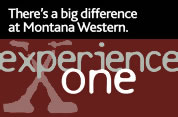|
Honors Program: A pathway to excellence.
HON 102/402 Explore Iceland: Sustainable life and landscapes on a mid-Atlantic hotspot
This class is a broadly interdisciplinary, thematically integrated, study of how Iceland's geology and geomorphology have influenced ethnobotanical and sustainable agricultural practices and the ways in which these subjects are interpreted to the public through tourism.
Iceland is a Nordic island nation with a population of 325,671 and an area of 103,000 km2 (40,000 sq mi), making it the most sparsely populated country in Europe. Iceland sits on a giant hotspot on the Mid-Atlantic ridge and it is geologically one of the most active landscapes on the planet. It hosts active volcanoes, the second largest geyser field in the world, hot springs, waterfalls, glaciers, and a dynamic and varied coastal interface. The North Atlantic Current moderates the climate of this relatively high-latitude nation (about N 65°).
When the island was first settled by Europeans, in the 9th Century, it was extensively forested. However, permanent human settlement greatly disturbed the isolated ecosystem of thin, volcanic soils and limited species diversity. The forests were heavily exploited over the centuries for firewood and timber. Deforestation, climatic deterioration during the Little Ice Age and overgrazing by sheep imported by settlers caused a loss of critical topsoil due to erosion. Today, many small scale farms have been abandoned.
Since the country's economic collapse in 2009, Iceland's government has made great strides in implementing renewable energy nationwide. Because of Iceland's unique geology, clean renewable geothermal energy is available and abundant for heating and power generation. Currently some 80% of the country's electricity needs are met through hydropower while geothermal fields provide up to 20%. Geothermal energy runs an extensive network of greenhouses, enabling sustainable food production. In addition, the country's cars and ships may soon be fuelled by hydrogen cells. This combination could make Iceland energy self-sufficient, 100% powered by renewable energy.
Interpretation and tourism are being used to showcase the country and empower the people of Iceland to take pride in their accomplishments and the beautiful landscapes of their country.
Travel Abroad: Students taking part in this class will spend the first week in the regular class time learning about and preparing for the trip to Iceland. This week will include lectures, class activities, movies and logistical planning. During the second and third weeks of class students will travel as a group throughout Iceland, led by their faculty and a professional tour guide. Academically, we will focus on the geology, ethnobotany, sustainable agricultural practices and interpretation of the places we visit. During the last week of class, students will finalize their photo journals and public presentations, culminating in an evening event open to the public.
_____________________________________
Substitutions:
Course substitutions:
* General Education Science class
*ENST 120 Sustainable Landscape Horticulture
*BIO 103 Introduction to Ethnobotany
*GEO 101 Introduction to Geology (for all but Elementary Education majors)
*GEO 103 Introduction to Environmental Geology
GEO 494 Geology Seminar
GEO 230 Geology of the American West
GEO 378 Surficial Processes
ENST 475 Environmental Interpretation II
Instructor: Drs. Sheila Roberts and Linda Lyon
Time: Spring 2016, Block 7,
|

 << back
next>>
<< back
next>>

